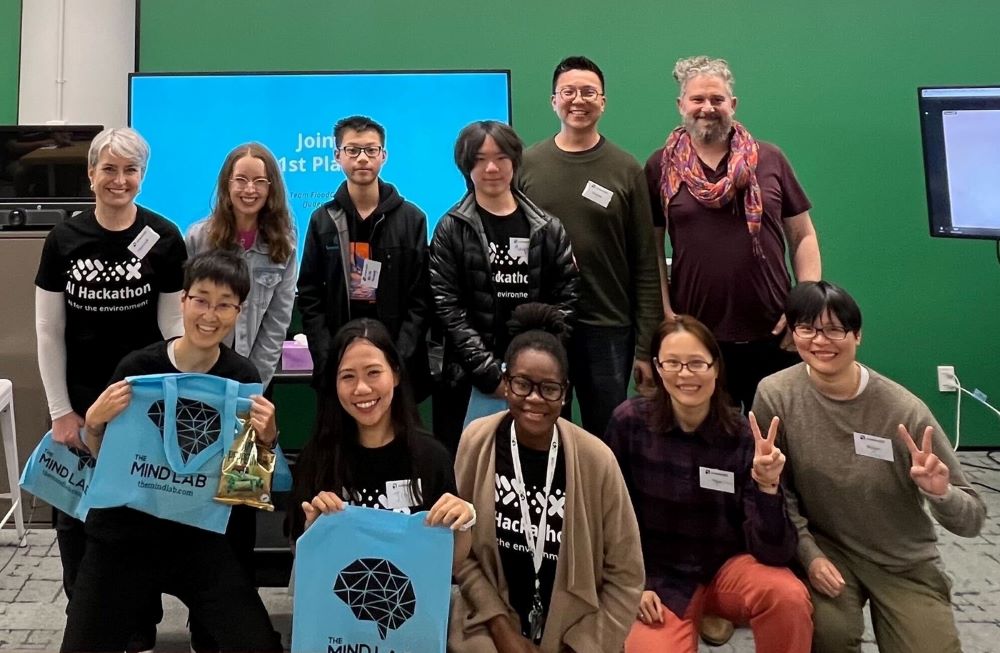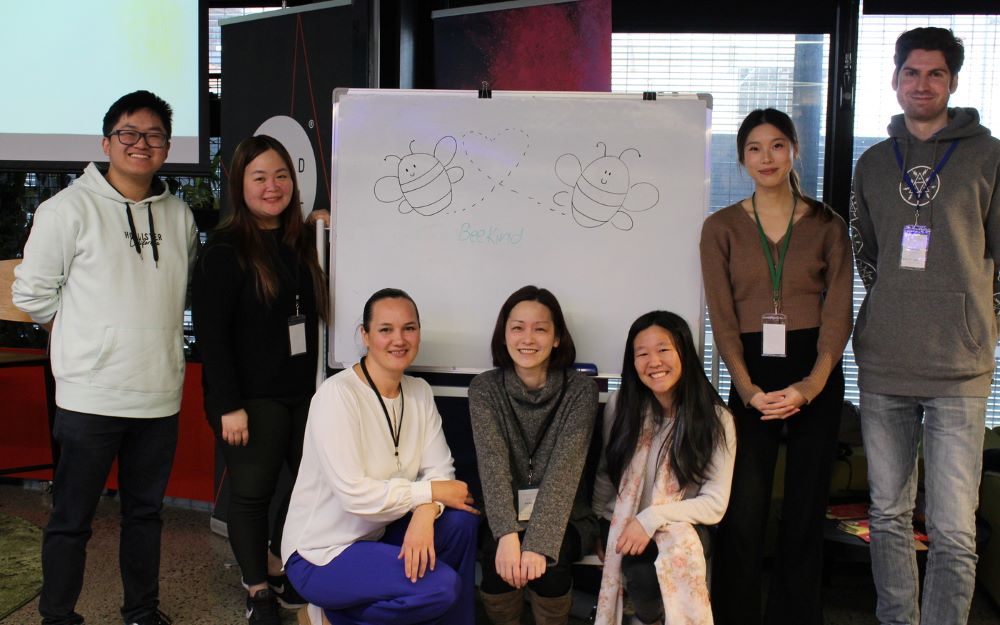In August 2023, the AI for the Environment Hackathon Festival commenced across Aotearoa, New Zealand and the South Pacific. The festival was made up of eight two-day hackathons focused on solving one of five real-world, location-based environmental problems, including:
- climate change mitigation
- reducing pollution from our activities
- protecting our freshwater and marine resources
- impacts of changing land use
- preserving and bolstering biodiversity
At the end of each hackathon, teams of students, researchers, environmental scientists, and members of the digital technologies industry showcased their project ideas to a judging panel. The best four winning teams went on to pitch their ideas at the AI Summit 2023.
MIT Senior IT Lecturer Dr. Geri Harris was a mentor at the Auckland Hackathon supported by AcademyEx and She#. She also encouraged several MIT Digital Technologies students (undergraduate and postgraduate) to participate in the Festival.
Geri says it was an excellent opportunity for students to see how innovative technology, like artificial intelligence (AI), can be used to do good in the real world and how the skills they’ve learned so far can be adapted to many different scenarios.
“Technology is transforming the world we live in, so it’s important for students to understand the bigger picture: how technology can help solve problems not just in business but in society too,” says Geri.
“It’s not just about having technology. It’s about how we can use it to do good.”
In total, 13 MIT | Te Pūkenga students and recent graduates attended various hackathons.
Here’s what four of them thought of the experience:
Charles Yu – winner of the AcademyX Hackathon
The problem
Over two days, my team developed an AI solution that could help quickly identify collected litter during water body clean-ups (think riverbeds, beaches, and drainage areas around schools and communities).
This was to support the efforts of citizen scientists (who are mostly volunteers) who spend a lot of time tediously identifying, categorising and recording the litter collected.
The feedback on current apps is they have too many levels of identification, so users often resort to using paper documentation, which impairs the accuracy and consistency of records.
The solution
Our team’s solution, MCM (Marine Citizen Monitor), integrates AI through computer vision. Through the app, users take a photo, and AI helps identify the items to a certain degree of accuracy. We estimated this would save two to twelve hours of identification and categorisation by citizen scientists.
“I went into the event thinking I wasn’t the right fit to think about AI solutions, but I stand corrected,” says Charles. “There were five of us in the team – all from different working backgrounds; and having a diverse team, plus a clear direction from the start, helped us to win the top spot (with another team) for that day’s event. We didn’t make it to the AI summit, but the success of coming up with a minimum viable product and convincingly standing against six other good ideas was a big win for us.”
Samnieng Sek – winner of the Summer of Tech ‘Create Camp’ Hackathon
The problem
Reflecting on the Auckland floods in 2023, we decided to look for a way to use AI technology to help people identify when a house for purchase or rent is located on a flood plain.
The solution
We created a web app called Don’t Drown that helps Aucklanders identify if they are in a flood zone so that they can make informed decisions about their living situation.
Our team won two awards for good team collaboration and the overall Create Camp Hackathon solution prize.
“I took part in the Hackathon ‘Create Camp’ because I wanted to gain real-world experience working with strangers and industry mentors, and I wanted to test my skills in an agile environment,” says Samnieng.
“I would highly recommend MIT students attend the Hackathon next year. It’s a great opportunity to connect with and be mentored by industry professionals and showcase your potential – which all looks great on your CV.”
Rekha Bhatt – AcademyX Hackathon
The problem
Our team focused on a critical environmental issue: the inefficient and outdated methods of collecting water quality data, hindering the effective monitoring and protection of local marine ecosystems. Inadequate data collection methods have far-reaching consequences, impacting marine life and the region’s human activities.
The solution
We pitched the idea of developing a real-time web application that leverages AI algorithms to analyse data from various sensors and sources, providing users with up-to-the-minute information on water quality measures.
“One of the key learnings from the hackathon was the power of technology to bridge the gap between scientific research and practical environmental conservation,” says Rekha.
“The event not only allows you to apply your skills to real-world challenges but also connects you with a global community of like-minded individuals striving for positive change. I found the experience invaluable.”
Tatiana Pasechnik – Summer of Tech ‘Create Camp’ Hackathon
The problem
My team worked on building an app to enable acts of kindness in the community.
The solution
Over the weekend, we built an app called ‘Be Kind’ that lets people leave requests for help, and others can offer to lend a hand. It also generates random acts of kindness for people who might feel uncomfortable contacting strangers.
Our solution received third place out of ten for the good design and implementation of OpenAI API and Lambda function, and since the Hackathon, I’ve received an offer from Mercury to join them as a summer intern software engineer.
“My key learning was working with a team of people with different skill levels who I had never met before. We had to make decisions quickly and share tasks to be successful. The Hackathon was a great way to showcase my technical and soft skills and is an experience I can refer to in job interviews. Also, Summer of Tech is a great place to find an internship in the tech industry.”
Bring on 2024!
One of the most challenging parts for students was working with people they’d never met before. But now, as Geri points out, they understand why skills like collaboration and communication are essential in digital technologies.
“They came along, not knowing what problem they would be working on for the 48 hours or who they would be working with. It pushed them out of their comfort zone, but it all worked out on the day like I said it would,” laughs Geri.
Geri says she was blown away by what the students were able to achieve this year, and she’s excited about what that means for next year’s AI Hackathon.
Whether you’re just starting out or ready to take the next step in your IT career, check out MIT | Te Pūkenga’s Digital Technologies programmes.









